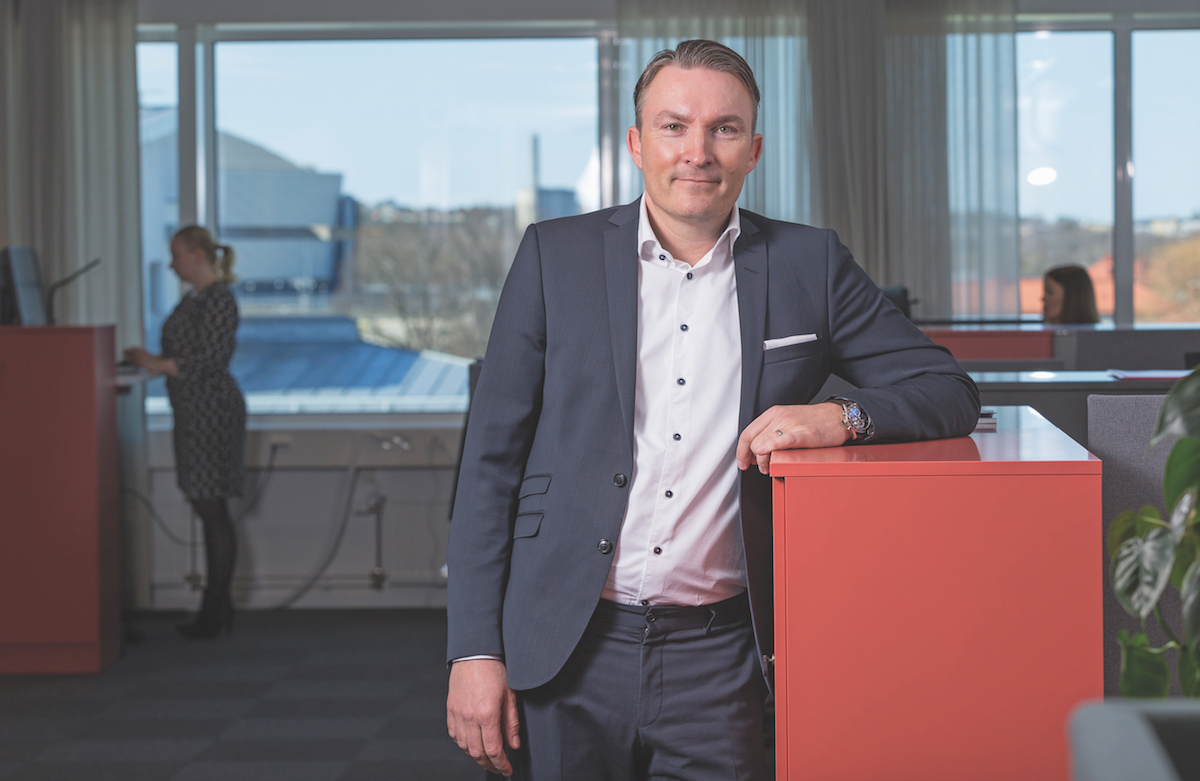Redefining rental: Leif Gustafsson
Cramo Group doesn’t follow; rather it leads the way, shaping and driving the future trends of the sharing economy.
It’s a big call for an equipment rental company to say that it can improve the lives of its customers. But it’s something Cramo Group wholeheartedly believes in, and it’s doing what it can to prove it.
The business recognises that having a great day at work can result in a better life out-of-hours too, so through the ease of its product rental operation it’s doing what it can to make that a reality. Cramo CEO Leif Gustafsson sits down with The CEO Magazine to explain how the business is doing more for its clients, its plans for future prosperity, and its commitment to innovation.
The CEO Magazine: You were appointed CEO in January 2016, coming from a completely different industry – recycling. What were the opportunities you saw in joining Cramo?
Leif: It’s an interesting company – well known and a strong brand, especially here in the Nordics. It’s a listed company, which was a new dimension for me. It’s international, which is also interesting. I was keen to see how we could take this company to further greatness.

I was keen to see how we could take this company to further greatness.
I had worked in the recycling industry for many years, and the rental industry is also a sustainable sector, so that was quite an intriguing aspect to me joining this business, as well as the opportunity to play a role in being a driver of the sharing economy.
Furthermore, I have worked closely with the construction industry for many years and that is Cramo’s biggest customer.
In the 18 months you’ve been with Cramo, what have been your key priorities?
Cramo was already a well-run company before I joined, and I wanted to learn more about the business by doing an analysis of different areas within it. I then wanted to see how we could improve and develop those areas to reach the next level.
From my initial analysis, I could see how competitive Cramo was within its industry sector, especially from a European perspective. There were 2 areas that were very interesting for me to begin to learn more about. One was the Cramo story, which contains 3 very clear brand promises to customers. I think that’s unique in this industry. One is to always be helpful.

The second is to never be late with deliveries – and if on the rare occasion it happens, then Cramo is committed to letting the customer know in advance and then compensating them accordingly. The final promise is the statement that Cramo equipment never fails, and if it does then it will be replaced within 4 hours, no matter where the customer is located. All of these highlight Cramo’s quality assurance towards its customers; and, internally, these 3 brand promises also force staff to live up to them.
Another focus has been on performance management, in which we have introduced a KPI system. This has been implemented across all levels, from the depot right through to a Group level – or to my desk, you could say. This means we can measure, compare and take quick action when things don’t go as planned.
We can look at the efficiencies between depots, distribution regions and countries very quickly, and learn about the things that are perhaps not developing well or moving in the right direction.
Furthermore, I’ve been working with the group’s management team on a new strategy called Shape and Share, which we disclosed in mid February at our Capital Markets Day. That has been very interesting and has involved quite a lot of people in the company to secure thenext strategy phase for Cramo.
Tell us about Cramo Group’s company culture.
There’s no doubt it is extremely important. From my point of view, every culture needs a story for employees to align to. Cramo employees are proud to be a part of this company, and I think that has been enhanced by having this story with the 3 brand promises; they recognise our values very clearly.
At the end of the day, Cramo is a people business. We have strong local business acumen, and it’s important that we’re able to encourage and coach our people to take the right steps forward.
At the end of the day, Cramo is a people business.
Recently we recruited a human resources director who will help us to continue
to develop our most important asset – our employees. We’re also making sure we’re recruiting the right people with the right attitudes.
How does Cramo plan to grow over the next few years?
We have 2 very clear product groups or divisions within Cramo today. One is equipment rental and the other one is modular space through our sub-brand Cramo Adapteo, which provides high-quality modules for temporary space solutions for schools, day cares, offices and accommodation. This is our major growth area because there’s a huge demand in society for it, driven by some very clear megatrends that we see today, including ongoing urbanisation.
People are moving to bigger cities and there’s increasing demand for modular solutions for buildings. We’re aiming for a continuation of high double-digit growth in this area, and this will be achieved via organic means as well as by screening for acquisition opportunities throughout Europe.
Then, when it comes to our equipment rental division, we already have a huge depot network. We’re focusing on operational efficiencies and improving every part of our value chain, from deliveries and how we handle our equipment to logistics and how we source our equipment.
How are you working with your suppliers to form stable partnerships so that they support you on this journey?
Our suppliers are extremely important to us. We’re investing a lot into these relationships on a yearly basis. One thing that’s very important for us is to make sure our suppliers are developing products that are recyclable, and that they’re using sustainable materials. We’re already quite involved with that today and we’ll continue to increase our focus on that moving forward.
How important is innovation to Cramo?
We’re currently looking at how we’ll use new technologies to reach our customers and support them in the future. We need to be open to developing fresh business models and ideas so that we can be a leading rental service company in Europe.
We don’t want to copy others; we will dare to test new things and see if they work. That’s how we’ll shape our future: by testing, piloting and finding new ideas from a technology perspective, but also from a business model perspective.
The result will be a more dynamic company that meets tomorrow’s demands a little bit better. The Cramo way is to shape our industry and make sure that we’re a driver when it comes to the sharing economy. I think that’s the key message from Cramo moving forward: not to follow, but to shape.